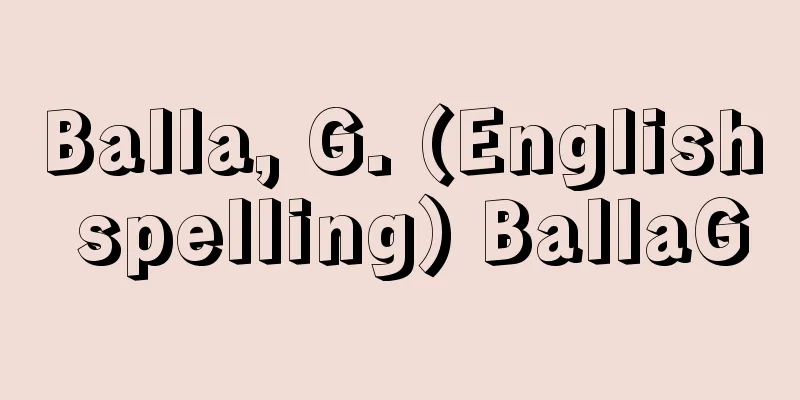mercatus

|
…The German word Messe, meaning market, is derived from the word for the church mass, and by extension has come to refer to the market held after the mass. Markt comes from the Latin word mercatus, and has the main meaning of "to buy" or "to trade." In the 11th and 12th centuries, cities were formed from these pioneering settlements. … *Some of the terminology explanations that mention "mercatus" are listed below. Source | Heibonsha World Encyclopedia 2nd Edition | Information |
|
…市を意味するドイツ語のメッセMesseは教会のミサに由来する言葉で,転じてミサのあとに開かれる市をも示すようになった。マルクトMarktはラテン語のmercatusに由来し,〈買う〉〈商う〉に主たる意味がある。11,12世紀にはこうした先駆的形態の集落から都市が成立していった。… ※「mercatus」について言及している用語解説の一部を掲載しています。 出典|株式会社平凡社世界大百科事典 第2版について | 情報 |
Recommend
Kamiura [town] - Kamiura
An old town in Ochi District, Ehime Prefecture, oc...
Aerial Shigaraki
〘Name〙 Pottery made by the Edo period potter Honna...
Origin
… Among these, Umetaro Suzuki was the first to co...
Röntgen, J.
… In the 17th and 18th centuries, citizen perform...
Ammeter - Ammeter
An instrument that measures DC or AC current. Ide...
Pope's Donkey - Kyoko Donkey
…In the 15th and 16th centuries, in the midst of ...
Seger, HA (English spelling)
…It is also called Segerkegel in German. It is a ...
Submarine cable - Submarine cable
This refers to a cable for electrical communicatio...
Ichikawa Danshiro
Kabuki actor. There are four generations. The stag...
Emden [seed] - Emden
…Anser anser is a domestic fowl belonging to the ...
Ichinen Sanzen - One thought, three thousand
A Buddhist term. This is a teaching preached by t...
Homotopy - homotopy
For two continuous maps f , f ': X → Y from a ...
Subarctic rainy climate - Akantaitauikikou
The subarctic zone is located between the temperat...
Masanobu Hirauchi - Masanobu Hirauchi
A master carpenter in the early Edo period. Born ...
RE - Ree
《 reverse engineering 》⇒reverse engineering RE [ro...









